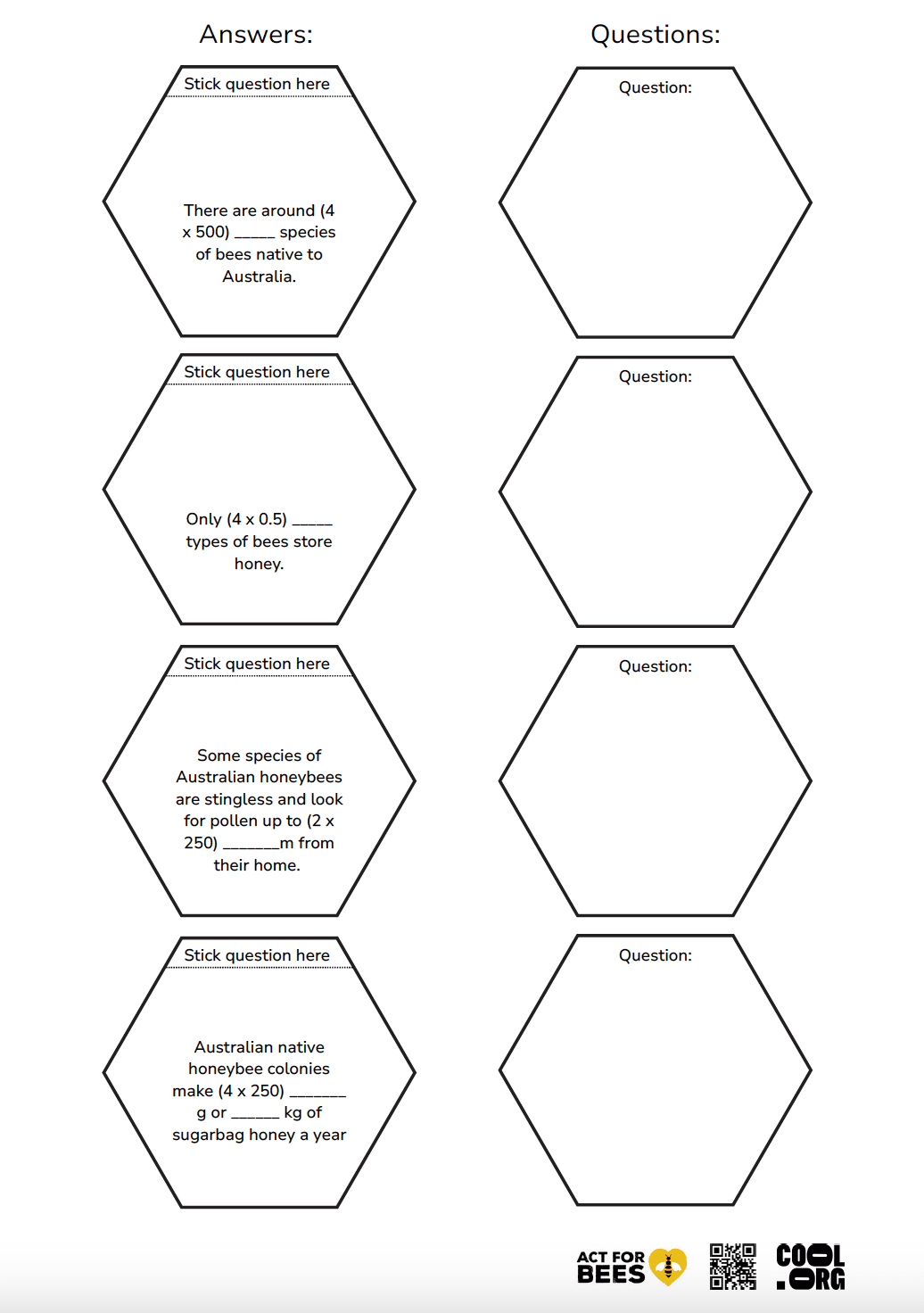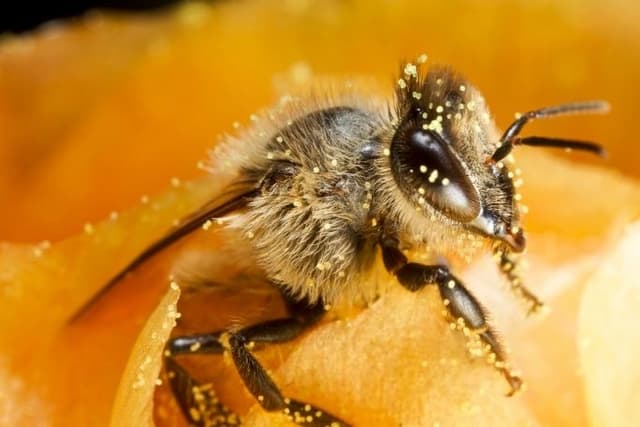
Bees, Pollination and Food
Lesson5 of 10 in this unit
PrimaryYear 5 - 6EnglishMathematicsScienceHumanities and Social SciencesBusiness and EconomicsEnvironmentalBiodiversityConservationSustainability
Summary
Lesson guides and printables
Lesson Plan
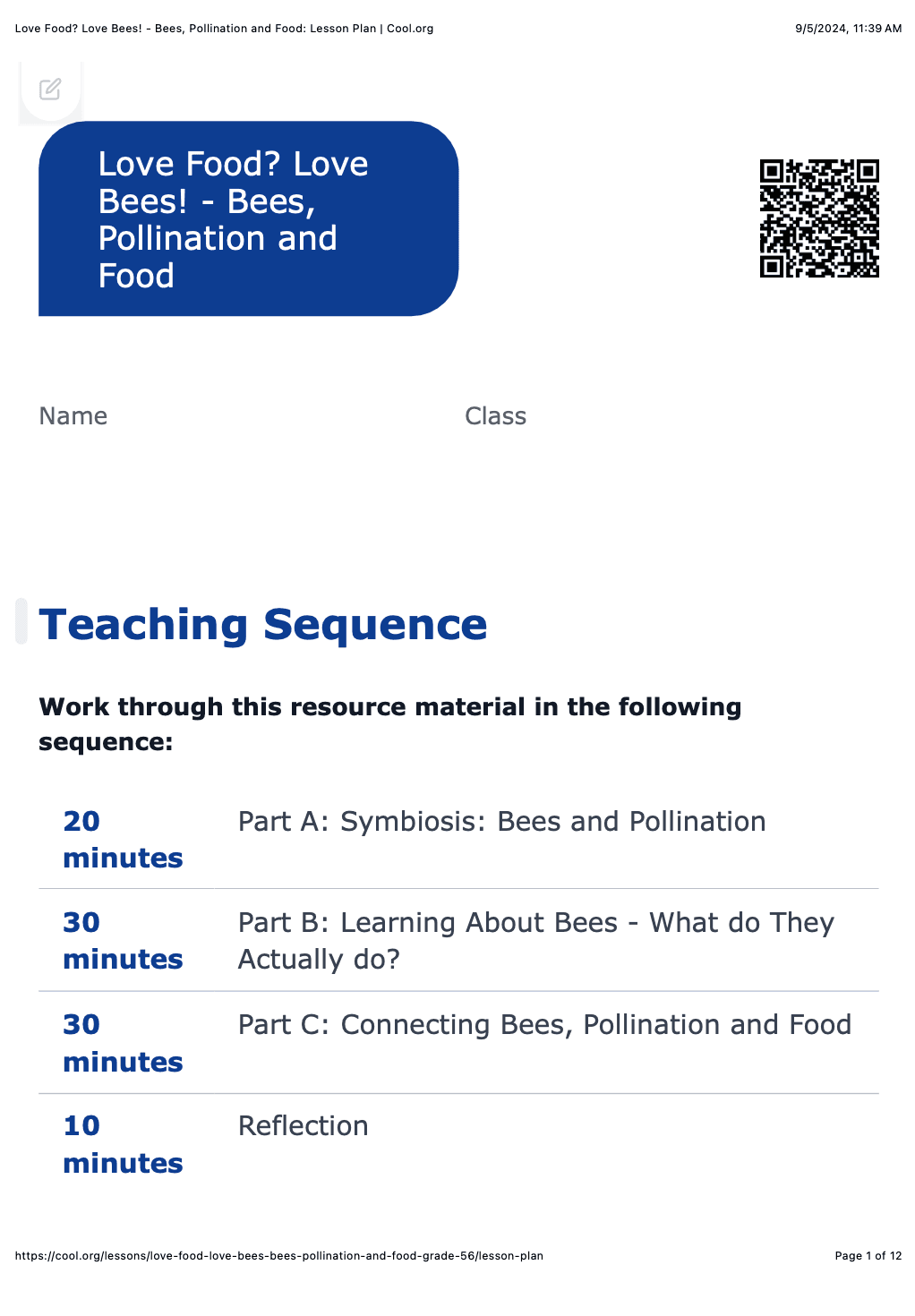
Student Worksheet
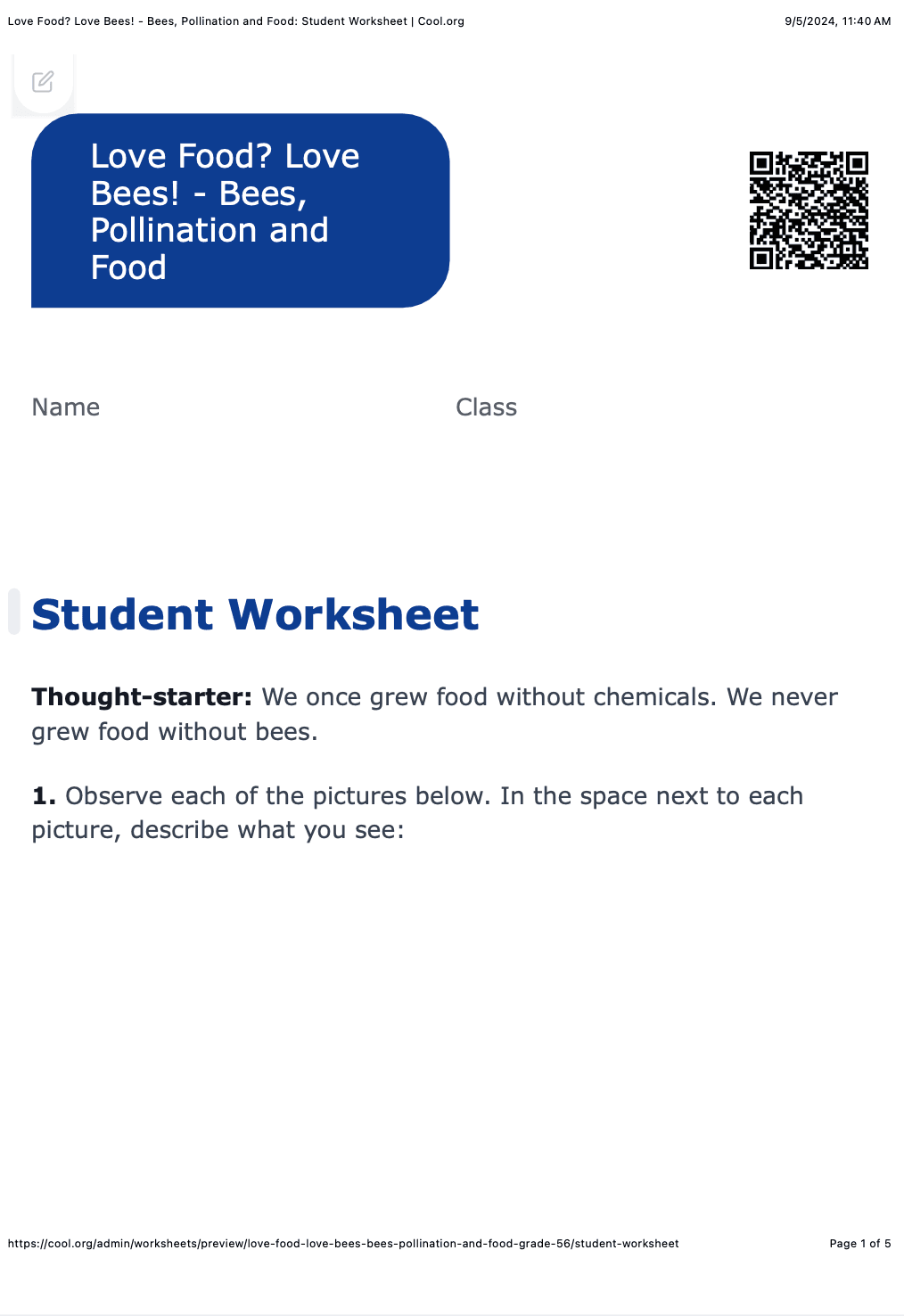
Teacher Content Info
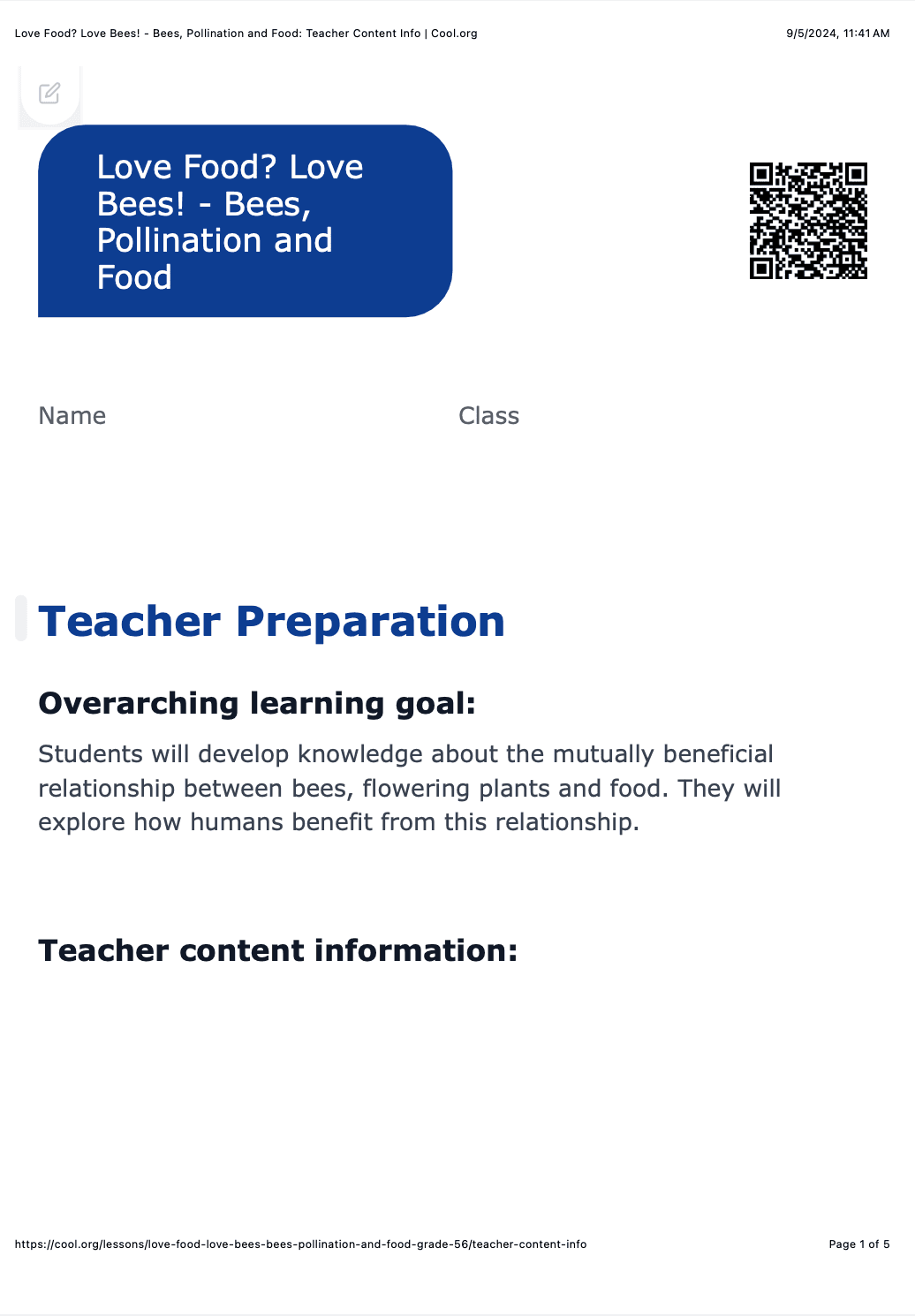
Learning About Bee's: Maths Questions
